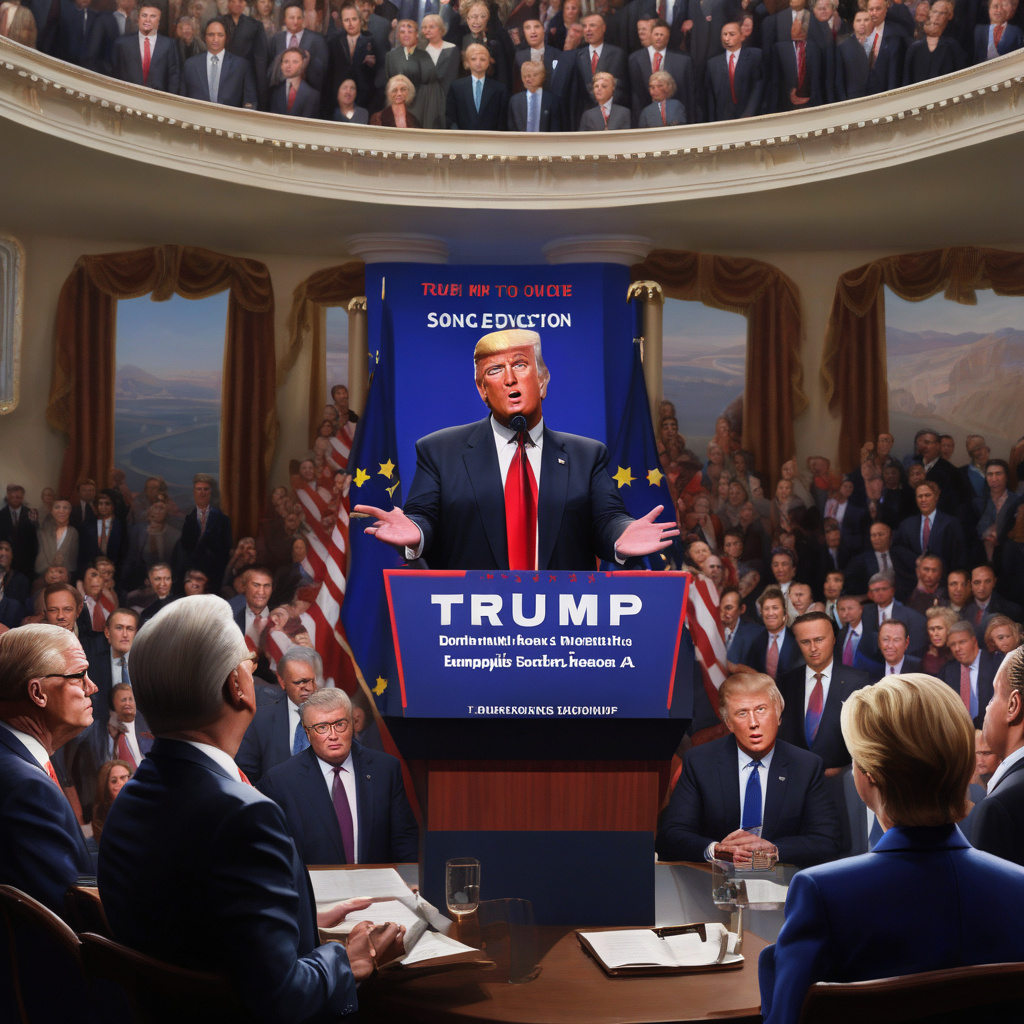Trump Threatens Sanctions on EU Over Digital Services Act
The ongoing debate between the United States and the European Union regarding the Digital Services Act (DSA) has reached a boiling point, with President Trump threatening sanctions against the EU. The crux of the issue lies in the differing perspectives on the impact of the DSA – while the US argues that the legislation censors Americans and unfairly targets US companies, the EU maintains that it is essential for protecting its citizens from harmful online content.
At the heart of the matter is the question of sovereignty versus regulation. The US views the DSA as an overreach by the EU, infringing upon the rights of American citizens and stifling the competitiveness of US tech giants in the European market. From the American perspective, the DSA imposes onerous compliance requirements that place undue burdens on US companies, effectively hindering their ability to operate freely in the EU.
On the other hand, the EU sees the DSA as a necessary measure to safeguard its citizens from the negative impacts of unregulated digital services. With the rise of fake news, hate speech, and other harmful content proliferating online, the EU believes that tighter regulation is essential to protect its populace. By holding tech companies accountable for the content on their platforms, the EU aims to create a safer online environment for its citizens.
The clash between the US and the EU over the DSA highlights the broader tensions surrounding digital regulation and governance in the global arena. As technology continues to advance at a rapid pace, governments are grappling with the challenges of balancing innovation and accountability. The divergent approaches taken by the US and the EU underscore the complexities of navigating the digital landscape in an increasingly interconnected world.
In response to President Trump’s threats of sanctions, the EU has stood firm in its defense of the DSA, emphasizing the importance of upholding European values and protecting its citizens. The EU argues that the DSA is not meant to target any specific country or company but rather to establish a framework for responsible digital governance that benefits all stakeholders.
As the debate rages on, the implications of the standoff between the US and the EU over the DSA are far-reaching. The outcome of this conflict could have significant consequences for the future of digital regulation and the global tech industry. How the issue is resolved will not only shape the dynamics of transatlantic relations but also set a precedent for how countries around the world approach digital governance in the 21st century.
In conclusion, the clash over the Digital Services Act between the US and the EU encapsulates the complexities of regulating the digital sphere in a rapidly evolving landscape. While the US raises concerns about censorship and market competitiveness, the EU prioritizes citizen protection and accountability. Finding common ground amidst these divergent perspectives will be crucial in forging a path forward that balances innovation with responsibility in the digital age.
digital services act, US-EU relations, tech regulation, global governance, digital innovation












